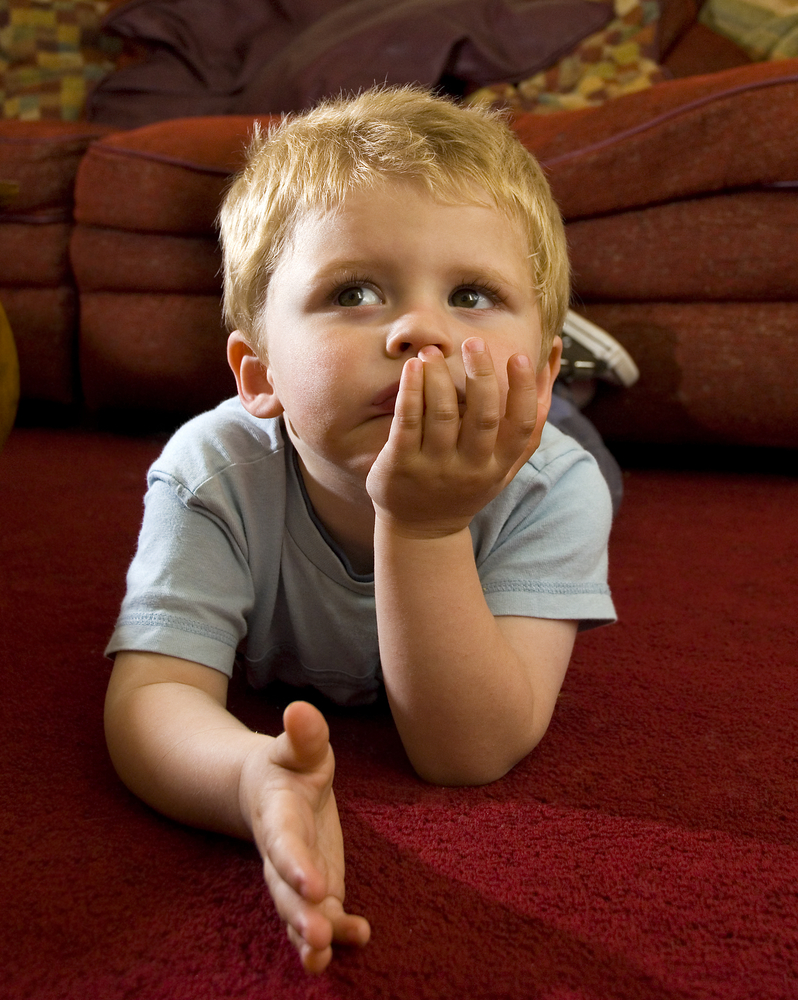Kids Under 2 Should Play, Not Watch TV, Doctors Say

BOSTON — Children under age 2 should avoid watching TV as much as possible, according to a new policy statement from the nation's largest group of pediatricians, who suggest the tots should play instead.
The idea that TV programs are beneficial to the learning of children this young has not been proved, the American Academy of Pediatrics says. In addition, TV viewing may lead to sleep problems and a delayed use of speech in young kids, recent research suggests.
Even merely having the TV on in the background may be less than optimal for a child's development, the AAP says. Background television may distract from playtime activities that benefit children's learning. And it may distract parents, preventing them from speaking and interacting with their kids, the AAP says. [Top 5 Benefits of Play]
However, the recommendations run counter to what most parents actually do. About 90 percent of parents say their kids younger than 2 watch some type of media, according to a 2007 study. By the age of 3, nearly one-third of kids have a TV in their bedrooms.
As a compromise, parents should come up with a strategy to manage TV viewing in their young children, the AAP says. Ideally, when kids younger than 2 watch TV, their parents should watch it with them.
The new policy statement was released today (Oct. 18) here at the AAP National Conference & Exhibition. The policy statement specifically addresses the viewing of TV programs and does not comment on the potential benefits or risks of using phone applications, video games or other programs a child may encounter on a screen.
Young kids and TV
Sign up for the Live Science daily newsletter now
Get the world’s most fascinating discoveries delivered straight to your inbox.
The AAP first released guidelines on media use by young kids in 1999, concluding that media use by kids under 2 should be discouraged. Since then, a lot more research has been done on the subject. The AAP reviewed this research for its new policy statement and essentially came to the same conclusion.
That's not to say that kids can't benefit from TV. Children older than 2 can improve their language and social skills by watching TV, some studies have shown.
However, in order to gain a benefit from a TV program, kids need to be able to understand and pay attention to it. Young kids may lack the mental ability to comprehend what they are watching. In fact, two studies have found that, for kids 2 and under, watching programs such as “Sesame Street” may have a negative impact on language development, the AAP says.
"There's a great developmental digital divide," Dr. Ari Brown, a pediatrician in Austin, Texas, and lead author of the new policy statement, said at a news conference. Studies show that children under 11/2 years old have the same reaction to a TV program regardless of whether it's going forward or backward, Brown said. In contrast, older children prefer to watch the program forward.
All in all, instead of spending time in front of the TV, young kids are likely better off spending that time engaged in unstructured play, which promotes creative thinking, problem solving and reasoning skills.
Setting limits
If parents choose to let their young kids watch TV, they should set limits, the AAP says. They should also avoid placing a TV in the child's bedroom
Parent should be aware TV programs may affect their child's development, even if the child cannot understand the program. They should turn the TV off if no one is watching it and try to watch their adult programs when the kids are not around, Brown said. [Violent TV Linked to Kids' Sleep Problems]
If parents cannot play with their kids directly, even having the children play with toys by themselves can be beneficial, the AAP says.
The AAP also recommends further research in this area to examine the long-term effects of early TV viewing on toddlers’ development.
The new policy statement will be published in the November issue of the journal Pediatrics.
Rachael Rettner is a Staff Writer for MyHealthNewsDaily, a sister site of LiveScience. Follow Rachael on Twitter @RachaelRettner.

Rachael is a Live Science contributor, and was a former channel editor and senior writer for Live Science between 2010 and 2022. She has a master's degree in journalism from New York University's Science, Health and Environmental Reporting Program. She also holds a B.S. in molecular biology and an M.S. in biology from the University of California, San Diego. Her work has appeared in Scienceline, The Washington Post and Scientific American.









